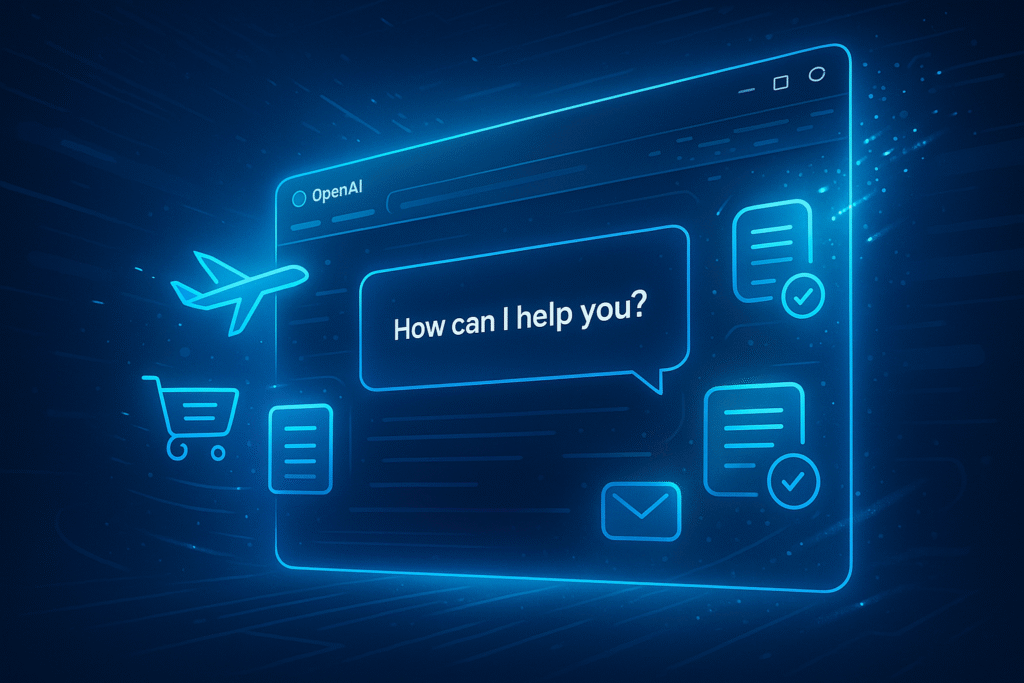OpenAI is shaking up the browser landscape with its latest announcement, a cutting-edge AI-powered web browser designed to rival Google Chrome. The browser, set to launch in the coming weeks, promises to transform how users interact with the web by embedding artificial intelligence into the core browsing experience.
A New Era of Browsing
Built on Chromium, the same open-source framework that powers Chrome, OpenAI’s browser will offer a familiar interface but with a radical twist: users will navigate the internet through a conversational AI window. Instead of manually opening multiple tabs or searching line by line, users can simply ask the browser to complete tasks, retrieve data, or summarize content in real-time.
This functionality is powered by “Operator,” OpenAI’s conversational assistant, which is designed to make web navigation as easy as chatting with a friend. Whether you’re shopping online, filling out forms, booking travel, or searching for recipes, the browser’s AI will act on your instructions intelligently and efficiently.
The End of Tabs?
One of the boldest ideas behind OpenAI’s browser is the elimination of traditional tabs. By keeping all interactions within a dynamic chat window, users won’t need to jump between multiple pages or lose track of their online activity. This innovation aims to simplify web navigation and increase productivity, particularly for multitaskers and busy professionals.
Automation and AI Agents
What sets this browser apart is its ability to perform real tasks on behalf of the user. OpenAI’s AI agents will be capable of interacting with websites like a human user—clicking buttons, filling out information, and even making secure purchases.
Imagine planning a vacation. Instead of manually visiting flight and hotel websites, comparing prices, and booking one by one, you could tell the browser: “Plan a 3-day trip to Paris with a hotel under $150 per night and direct flights from NYC,” and it will do the rest.
Challenging Chrome’s Dominance
With nearly 70% of the global browser market share, Google Chrome is the undisputed leader. But OpenAI’s move could be a serious challenge. By offering not just speed and reliability, but intelligent automation and contextual understanding, OpenAI is targeting a new generation of internet users who value time and ease over tabs and settings.
Moreover, OpenAI’s ownership of the browser gives it direct access to valuable user data, an area long dominated by Google for its ad-driven business model. This shift could gradually chip away at Google’s competitive advantage.
The Bigger Strategy
This launch is part of OpenAI’s broader push into consumer products. Recent moves—like hiring key Chrome engineers and exploring AI hardware—suggest the company is not just building tools, but designing a full ecosystem around its technology. The browser could serve as a central hub for all OpenAI-powered services, from document creation and email drafting to e-commerce and research.
Competition Is Heating Up
OpenAI isn’t the only player reimagining the browser. Startups like Perplexity (with Comet), Brave, and The Browser Company are also exploring AI-native experiences. However, OpenAI’s track record with ChatGPT and its massive user base give it a strong head start.
What This Means for You
For everyday users, this new browser could make the internet faster, smarter, and less overwhelming. For businesses and publishers, it raises new questions about how content is accessed and monetized. And for tech giants like Google, it signals the beginning of a new kind of competition—one driven by intelligence, not just infrastructure.
